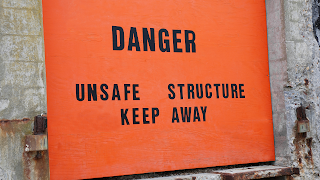The Placeholder Diaries: When You're Just an Option
Recognizing that I was a placeholder was disheartening. How did a man put forth so much effort only for me to discover he was waiting for his ex to take him back? I was hurt and felt as though I had accepted this behavior once too many times. He checked every box I desired in a mate and a few extra things my then-relationship coach taught me to look for. I even asked how his last relationship ended but concluded it was his answer I did not fully dissect.
I should have noted the answer or his body language when asked. I did not clock the tea, so I was caught off guard. Fast forward, I am dealing with the same thing but in a platonic relationship. I recall the breakdown between this person and one of her other friends, but I did not know to be on guard like I would now in my romantic relationships. I had no idea I could be a placeholder in a friendship, too. I rarely open myself to friendships, considering what I have experienced at the hands of women. Still, I did and ended up sitting in my office, mad with myself, because although I did not initially know that it would go this way, I noticed what seemed like jealousy at some point. The digs and the shady weird shit already had me on watch and slowly pulling back, but the ultimate move for me was creating beef and upping the ante on the shade and digs to justify welcoming someone back who left them in the dust.
Friendships are often described as lifelines, support systems that offer love, encouragement, and companionship. But what happens when you realize you are not seen as a priority in some friendships but merely as a placeholder? A placeholder in a friendship is someone who is kept around for convenience—an option when others aren’t available, a backup friend who fills the void until someone "better" shows up, or until the friend they are on bad terms with comes back. This realization can be painful and confusing, but it’s essential to recognize the signs, understand your worth, and take steps toward healthier relationships.
Being a placeholder in a romantic relationship is similar to being a placeholder in a friendship. It generally means you are good enough when another person is bored, lonely, needs something, or fills a void until the person they desire to be there comes back around. You will know when the journey ends when you are purposefully excluded. In shock, I mentally detached and made a mental note that women in friendship move just as badly as men in relationships.
I am grateful for the experience, but I will check out and forget you exist. I refuse to stay in these friendships, which drain my energy and prevent me from forming genuine, reciprocal connections with people who truly value me.
The Emotional Toll of Being a Placeholder
Being a placeholder friend can have a significant emotional impact. Over time, it may lead to:
Feelings of Resentment: Constantly giving without receiving can create frustration and resentment.
Eroded Self-Worth: Being treated as a backup can make you question your value and worth.
Emotional Burnout: Carrying the weight of an unbalanced friendship can be emotionally exhausting.
Trust Issues: Trusting future friendships may become more challenging after being treated as a placeholder.
The emotional toll is real; acknowledging these feelings is the first step toward healing.
How to Navigate Placeholder Friendships
It's time to act once you realize you're in a placeholder friendship. Here’s how you can navigate this situation:
1. Acknowledge Your Feelings
It’s okay to feel hurt, disappointed, or even angry. Recognize and honor your emotions without judgment.
2. Communicate Your Concerns
If the friendship is important to you, consider having an honest conversation. Express how you feel and ask for clarity on where you stand in the relationship.
3. Set Boundaries
You are allowed to set boundaries around your time and energy. If you’ve made yourself overly available, step back and see how the other person responds.
4. Evaluate the Relationship
Ask yourself whether the friendship brings you joy or feels like a burden. Does this person lift you or drain you?
5. Make Space for Genuine Connections
By stepping away from unbalanced friendships, you create room for meaningful relationships with people who see and appreciate your value.
Choosing Yourself Over Placeholder Roles
Letting go of friendships where you feel like a placeholder can be tricky, but it’s often necessary for personal growth and well-being. It’s essential to remember that you are not an option—you are a priority. Healthy friendships are built on mutual respect, effort, and emotional investment. Walking away from relationships that don't align with these values is not selfish—it’s self-care.
.png)

.png)
.png)
Comments
Post a Comment